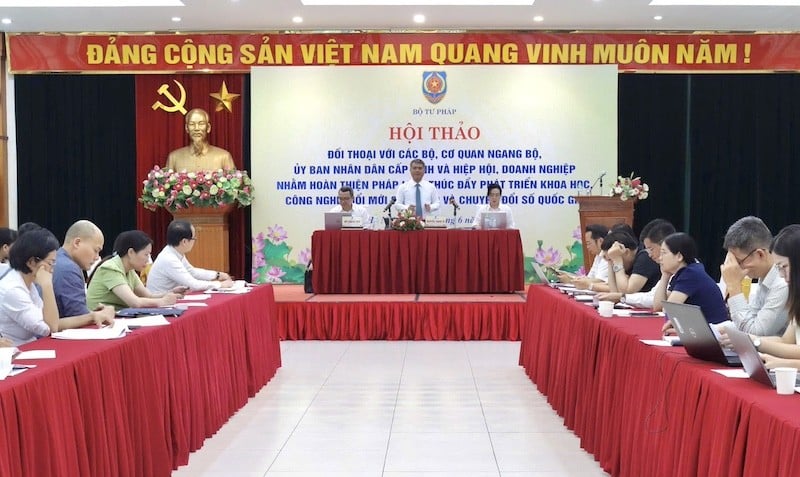 |
| The Ministry of Justice organized a dialogue workshop with representatives of ministries, ministerial-level agencies, provincial People's Committees, associations and the business community. (Photo: Ministry of Justice's electronic information portal) |
According to the Ministry of Justice’s electronic information portal, in his opening speech, Deputy Minister Nguyen Thanh Tu affirmed that science and technology play a particularly important role in the development of the national economy . However, in order for science and technology to become a real driving force for growth, the legal system needs to be completed synchronously, effectively and promptly.
According to the assessment of the Central Steering Committee on Science , Technology, Innovation and Digital Transformation, in recent times, ministries, branches, localities and enterprises have made many efforts to contribute to the development and improvement of legal policies in this field. However, the actual effectiveness is still not high. The development, amendment and promulgation of legal documents are still slow, and the quality does not meet practical requirements. Coordination between agencies in the law-making process is still ineffective. Many laws related to science, technology, innovation and digital transformation are not yet connected and compatible with other laws such as the State Budget Law, the Bidding Law, the Corporate Income Tax Law, the Personal Income Tax Law, etc. This leads to the risk of delays in registration, disbursement and settlement of funds for research and application activities of science and technology.
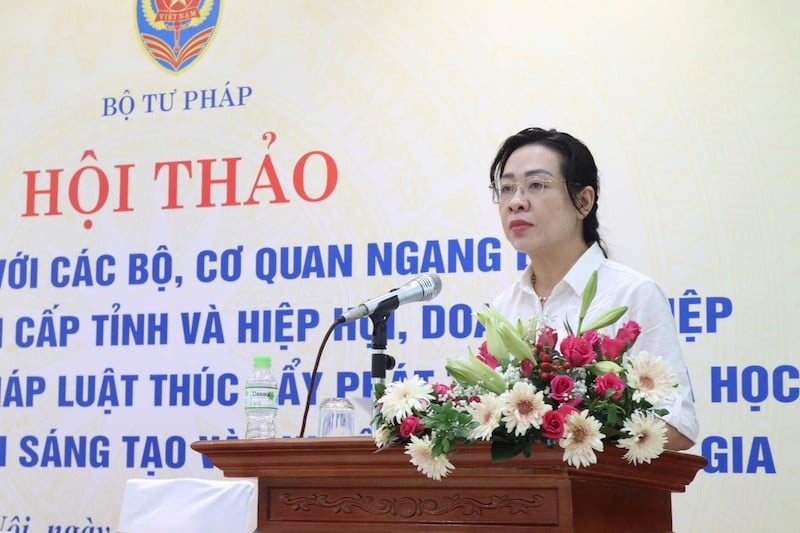 |
| Ms. Nguyen Thi Thu Hoe, Deputy Director of the Department of Inspection of Legal Normative Documents, Ministry of Justice. (Photo: Ministry of Justice's electronic information portal) |
At the workshop, Ms. Nguyen Thi Thu Hoe, Deputy Director of the Department of Inspection of Legal Normative Documents (Ministry of Justice) presented a report on reviewing current legal documents. The report identified two main groups of problems.
The first group is issues that have been resolved, including 9 contents related to strategic technology, risk management mechanisms in scientific research, laws on e-commerce, preferential policies in the fields of information technology and digital technology. These contents are currently included in the draft Law on Science, Technology and Innovation and the Law on Digital Technology Industry. This group is also related to 7 laws that are in the process of being amended, including the Law on Military Service 2015, the Law on Information Technology 2006, the Law on State Budget 2015, the Law on Bidding 2023, the Penal Code, the Law on Public Investment 2024 and the Law on Science and Technology 2013.
The second group is issues that have no solution, including 9 contents, divided into two categories. The first type is issues that have no legal regulations, including the content on exemption from advance guarantees for special tasks. The second type is regulations that already exist but are causing problems and have no effective solutions. Typically, the 2015 Law on Network Information Security does not clearly stipulate the time and order for handling information security incidents, leading to delays and ineffective handling. The 2016 Law on Access to Information does not specify the "electronic network" used to provide information upon request, causing difficulties for agencies in fulfilling their obligation to provide information transparency.
At the workshop, many delegates also proposed to add specific regulations on the transfer of digital technology, software, artificial intelligence, as well as mechanisms on intellectual property rights for digital technology products. At the same time, it was recommended to simplify administrative procedures in scientific research, create conditions for businesses to access technology resources, and promote the commercialization of research products. Opinions said that in order to develop science, technology and innovation to become a driving force for growth, the legal system needs to pioneer and pave the way, creating a transparent, flexible and guiding legal corridor.
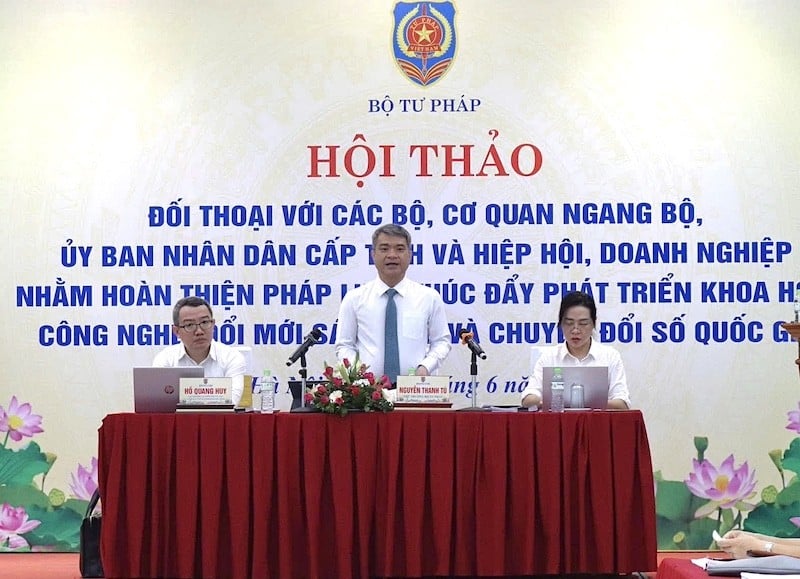 |
| Deputy Minister of Justice Nguyen Thanh Tu (middle) delivered a concluding speech at the Workshop. (Photo: Ministry of Justice's electronic information portal) |
Concluding the workshop, Deputy Minister Nguyen Thanh Tu emphasized that the Ministry of Justice will absorb all recommendations at the workshop, coordinate with the Ministry of Science and Technology to complete the report to submit to the Central Steering Committee on Science and Technology Development, Innovation and Digital Transformation, as well as the Central Steering Committee on Perfecting Legal Institutions.
Source: https://thoidai.com.vn/hoan-thien-phap-luat-de-thuc-day-doi-moi-sang-tao-va-chuyen-doi-so-quoc-gia-214181.html










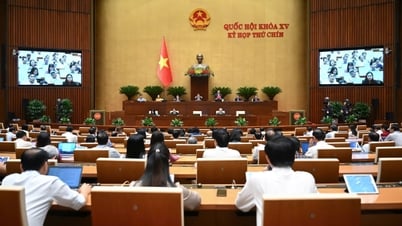


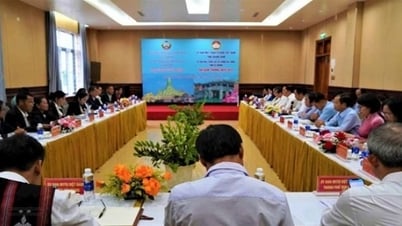









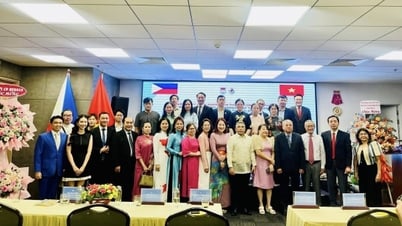






















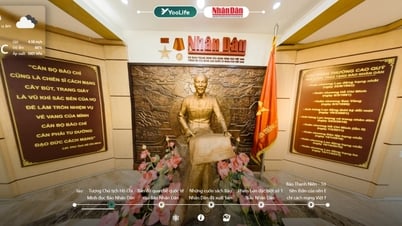








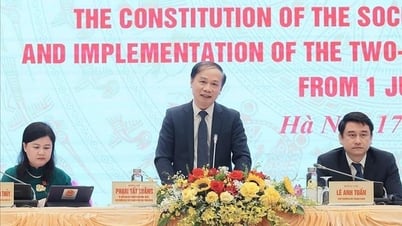


















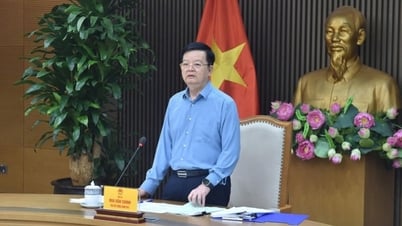



















Comment (0)